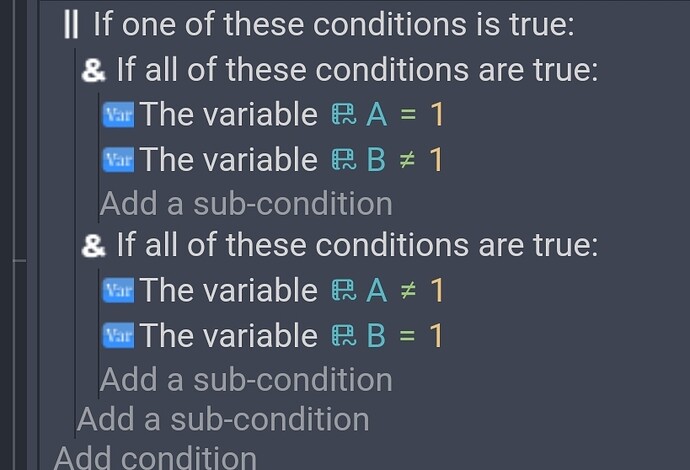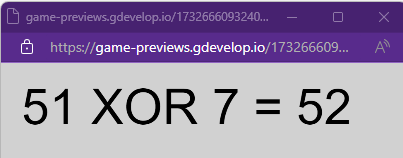What I want to know is, is the OR condition an XOR, or just a normal OR? An XOR is called an exclusive OR, and this is because they are true when only ONE of the sub conditions are true. So… is the normal OR condition exclusive, or not? And if it isn’t exclusive, can you guys at Gdevelop add an XOR condition?
PS: if this is confusin im sorz
OR can be tricky. It will trigger actions if any of the conditions are true but it also evaluates all of the conditions inside it. So, it will trigger the actions but there might not be objects picked for every object.
I don’t agree with the method. You might need to use pick all objects and an action to repick an object if don’t want to use all of the objects.
Another option would be to use a boolean variable. So, the pick status didn’t matter.
I run into this problem with UI controls.
This wouldn’t work right because it would only update the value of the slider being dragged.
You would need to use pick all to repick the objects.
My example used the same object type. So, it could’ve used a group object list. It would have the same outcome because the condition would still only pick the object being dragged.
Sometimes you might need to break things up or pair them with an AND.
Can you give an example of your XOR need?
Say I had 3 sliders and I only wanted 1 slider to be dragged. I could check how many sliders were picked.
Is this what you mean
If a=1 XOR b=1
I can see why this could be overcomplicated especially if you had more than 2 comparisons.
I didn’t test it but Copilot suggested an AND inside a NOT. I guess that makes sense. IDK if you actually need the AND.
Not (a=1, b=1)
It’s a logical OR, as any of the conditions need to be true. XOR tends to be for bitwise operations (one condition must true while the other is false), and it not the interpretation used in GDevelop.



